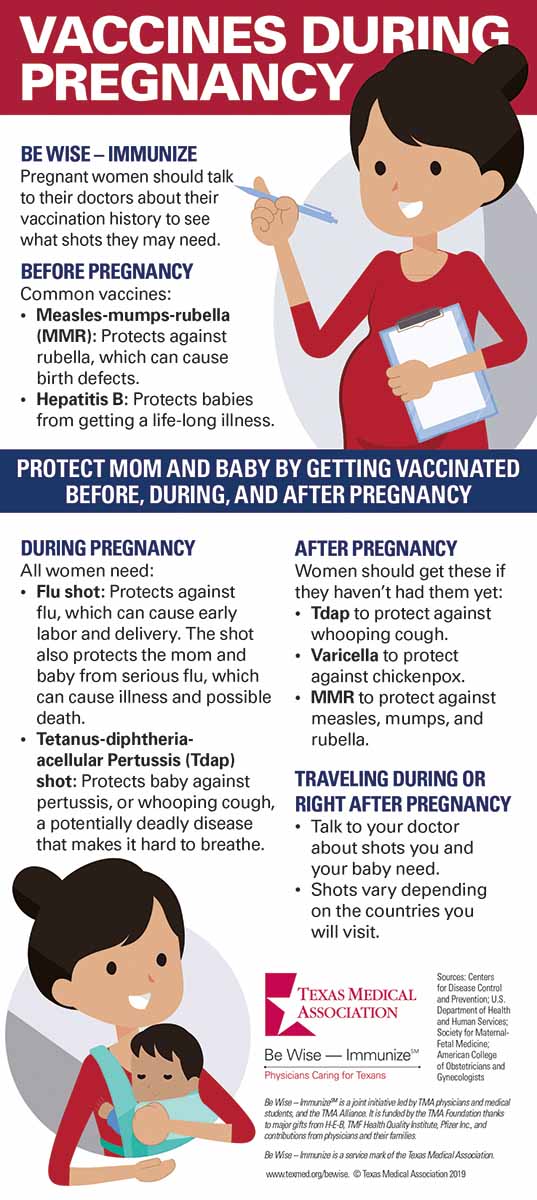Protecting moms and babies from certain diseases often starts with pregnant women.
Child-bearing women may not realize they pass on disease-fighting antibodies to their babies, protecting them early in life. That protection improves greatly when women get certain vaccines before and during pregnancy. They also may not realize getting vaccinated right after pregnancy can stop the spread of illnesses.
Women planning to get pregnant should talk to their physician about their vaccination history first. For instance, many women still may need the measles-mumps-rubella (MMR) vaccine. All three can become serious illnesses, but the main concern is rubella, which can cause birth defects, according to the Centers for Disease Control and Prevention (CDC). Women also should get the vaccine for hepatitis B, which can cause life-long health problems for the baby.
During pregnancy, women may not be aware that they and their babies are more vulnerable to certain illnesses. Pregnant women should get their annual flu shot because the illness can harm the woman and cause birth defects. Every pregnant woman also should get a (whooping cough) shot in the third trimester to protect babies right after birth, CDC says.
Women who don’t get the whooping cough vaccine during pregnancy may need it soon after delivery – as would anyone who spends time with a baby, CDC says. For the same reason, mothers may need to get the chickenpox vaccine and the MMR vaccine.

Tex Med. 2019;115(9):47
September 2019 Texas Medicine Contents
Texas Medicine Main Page
Last Updated On
September 11, 2025
Originally Published On
September 03, 2019